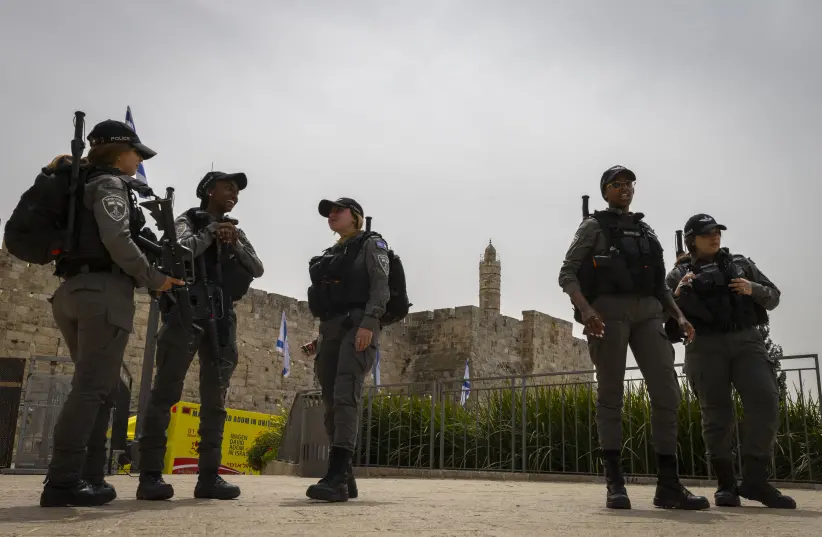Success of Abraham Accords doesn’t excuse gov’t handling of terror
The Abraham Accords have mostly created a new momentum for potential peace moves between Israel and its neighbors – and terrorism against Israel goes back to at least the 1960s.
So it would seem that the two would be opposites, with the accords being a driving force toward peace and terrorism increasing the chances of a broader regional religious war.
And yet their relationship is far more complex.
Despite the accords’ considerable achievements in increasing the acceptance of Israel in the Arab world and in creating an alliance against Iran, 20 months after the accords started, the predictions that they would revolutionize every aspect of the Israeli-Arab and Israeli-Palestinian conflict have fallen far short.
The accords might have helped create the space for the Ra’am Party’s Mansour Abbas to be able to break with the Palestinians and join the current coalition government. But it did not stop Hamas from initiating the May 2021 war with Israel, nor did it stop the rioting by a sizable minority of Arab-Israelis during that period.
Deals with the United Arab Emirates, Bahrain, Morocco and Sudan (a partial deal) have helped Israel lighten the pressure on it by the United States and the European Union to make immediate concessions to the Palestinians. Yet these deals have not prevented the outbreak of the current wave of terrorism impacting Jews on both sides of the Green Line.
The UAE, Bahrain and some other moderate Sunni countries have maintained positive economic progress with Israel even after crisis events with the Palestinians.
Nonetheless, they all criticised the Jewish state over its airstrikes responding to Hamas rocket fire in May 2021. Further, they criticised Israel again this past weekend when Israeli police entered al-Aqsa Mosque to halt rioting and rock throwing at Jewish worshipers.
There are some disturbing questions about whether the UAE, Bahrain and the Saudis (the driving force of normalisation behind the scenes) will continue their progress with Jerusalem even as their relations with the US have frayed.
If part of making nice with Israel was to get an inside track for support from Washington, then these countries’ new moves to cosy up to Russia could bring into question the value of their Israeli alliance.
In fact, it could be argued that the accords have blinded portions of Israeli decision-makers from the fragile and explosive ground on which the general quiet in recent years has rested.
In many competitions, if you go for the jugular, it is important to knock out the other side lest they rally against you with an even fiercer vengeance.
The Accords caught the anti-Israel forces in the region flat-footed.
Had they been pursued to their fullest to achieve movement with the Palestinians and other Israeli adversaries with whom some compromise might be possible, forces in the region affiliated with terrorism would truly have been weakened in a deep and lasting way.
Instead, most of the issues that allow radical terrorists – from Hamas to Hezbollah to ISIS to Iran – to brainwash young, ignorant, poor and troubled Palestinians or Arab-Israelis were left unaddressed.
In that sense, while the accords created potential for sucking the oxygen out of terrorist groups in the region, the failure of the normalization deals to treat any of the root issues in the Israeli-Palestinian conflict and with Israel’s neighbors could be said to have emboldened the terrorist side.
They have also become more desperate, realizing that if they do not literally blow up the current era of stability, the various ideological rationales for terrorism against Israel could continue to dwindle into truly small and ineffective numbers.
Hamas’s rocket attacks on Jerusalem in May 2021 and repeated references to Jerusalem since then, including this past month, show that the terror group is willing to take greater risks to remain relevant and undermine any sense that the accords were a game-changer.
Iran has also upped its efforts to carry out terrorist attacks in the UAE and Bahrain, according to Israel’s National Security Council.
Make no mistake: The accords have changed history for the better in terms of: 1) laying boundaries against Iranian hegemony; 2) showing that at least some Arab countries can normalize with Israel even if the Palestinian conflict is unresolved; and 3) building the coexistence narrative at the expense of the eternal holy-war narrative.
However, the former government of Benjamin Netanyahu used the potential of the accords and their realisation to ignore fault lines with the Palestinians, Arab-Israelis and other neighbours since the last real peace negotiations in 2014.
Sometimes this meant ignoring peace initiatives, sometimes ignoring terrorism emanating from a failure to finish the West Bank border wall, and sometimes pretending that Hamas and Hezbollah would just go away.
The current government has done the same or said that its internal ideological differences do not allow any forward movement.
In the meantime, terrorists who want to kill Jews have repeatedly refused to be ignored.
There have been other waves of terrorism since the 2015-2016 “Knife Intifada,” but consecutive governments have preferred to focus only on how to operationally choke them off temporarily until the next round instead of acting boldly and addressing the strategic issues.
Solutions – from more peace-making to a much broader crackdown on terrorism in the West Bank and Gaza to a mix of the two – exist and have existed for years.
The only question is whether the political class will finally confront these issues – that are not going away – or continue to pat themselves on the back for the Abraham Accords and look the other way until the next wave of terror becomes too great to be ignored.
Source: https://www.jpost.com/middle-east/article-704518
